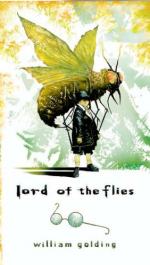|
This section contains 296 words (approx. 1 page at 300 words per page) |
Savagery and Civility in Lord of the Flies
Summary: Explores themes of savagery and civility in chapter 3 of Lord of the Flies, a novel by William Golding.
In chapter 3, the conflict between savagery and civility rose. Piggy and Ralph knew they must work together if they wanted to survive and be rescued. The littluns and biguns, who earlier listened to Ralph and Piggy were now playing on the beach instead of helping. The signal fire failed, since no one looked after it, and one of the littluns burned to death. Ralph wanted a civilization, based on a leader, while Jack wanted to be chief just for power, and wanted to use his power to hunt instead of doing more important things like making shelters (he symbolized savagery in this case). Jack followed his desires and hunted rather and didn't do much for the welfare of the group. Most of the boys had savage instincts and didn't think about the effect of their actions. This is why they didn't not value Piggy or Ralph at this part of the story. They played on the beach rather than work, and only Simon and Piggy continued to stay obedient to their chief. To make matter worse, this was just the beginning...
We have civility in our daily life, but we don't have much savagery. According to the Webster's Dictionary, civility is "a polite act or expression" and savagery is "an act of cruel ty or violence." Savagery exists in many forms in our daily lives, as there are many "acts of creulty or violence" demonstrated in today's society, like racism, bullying, and abuse, (AKA too much English homework for the winter break")are some of the many aspects that demonstrate savagery. But civility ("a polite act or expression:") is more commonly observed in our day-to-day lives. Demonstration of civility is as simple as a small gesture of kindness or merely saying "please" or thank-you."
|
This section contains 296 words (approx. 1 page at 300 words per page) |


